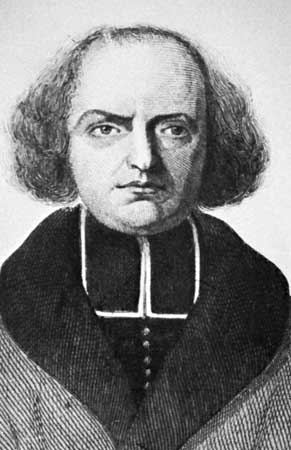Commentaria in Aristotelem Graeca [edita consilio et auctoritate academiae litterarum Regiae Borussicae] (CAG) (Greek Commentaries on Aristotle [edited by order and authority of the Prussian Royal Academy of literary studies]) is the standard collection of extant ancient Greek commentaries on Aristotle. The 23 volumes in the series were released between the years 1882 and 1909 by the publisher Reimer. Many of these commentaries have since been translated into English by the Ancient commentators project.
| Volume | Commentator | Work | Released |
|---|---|---|---|
| I. | Alexander Aphrodisiensis | In Aristotelis metaphysica commentaria, ed. Michael Hayduck | 1891 |
| II.1. | Alexander Aphrodisiensis | In Aristotelis analyticorum priorum librum 1 commentarium, ed. Maximilianus Wallies | 1883 |
| II.2. | Alexander Aphrodisiensis | In Aristotelis topicorum libros octo commentaria, ed. Maximilianus Wallies | 1891 |
| II.3. | Alexandri quod fertur (Michael Ephesius) | In Aristotelis sophisticos elenchos commentarium, Maximilianus Wallies | 1898 |
| III.1. | Alexander Aphrodisiensis | In librum de sensu commentarium, ed. Paulus Wendland | 1901 |
| III.2. | Alexander Aphrodisiensis | In Aristotelis meteorologicorum libros commentarium, ed. Michael Hayduck | 1899 |
| IV.1. | Porphyrius | Isagoge et in Aristotelis categorias, ed. Adolfus Busse | 1887 |
| IV.2. | Dexippus | In Aristotelis categorias commentaria, ed. Adolfus Busse | 1888 |
| IV.3. | Ammonius | In Porphyrii isagogen sive V voces, ed. Adolfus Busse | 1891 |
| IV.4. | Ammonius | In Aristotelis categorias commentarius, ed. Adolfus Busse | 1895 |
| IV.5. | Ammonius | In Aristotelis de interpretatione commentarius, ed. Adolfus Busse | 1897 |
| IV.6. | Ammonius | In Aristotelis analyticorum priorum librum 1 commentarium, ed. Maximilianus Wallies | 1899 |
| V.1. | Themistius | analyticorum posteriorium paraphrasis, ed. Maximilianus Wallies | 1900 |
| V.2. | Themistius | In Aristotelis physica paraphrasis, ed. Henricus Schenkl | 1900 |
| V.3. | Themistius | In libros Aristotelis de anima paraphrasis, ed. Ricardus Heinze | 1899 |
| V.4. | Themistius | In libros Aristotelis de caelo paraphrasis hebraice et latine, ed. Samuel Landauer | 1902 |
| V.5. | Themistius | in Aristotelis metaphysicorum librum Λ(12) paraphrasis hebraice et latine, ed. Samuel Landauer | 1903 |
| V.6. | Pseudo-Themistius | in parva naturalia commentarium, ed. Paulus Wendland | 1903 |
| VI.1. | Syrianus | in Metaphysica (Β - Γ (3 - 4), Μ - Ν (13 - 14)) commentaria, ed. Guilelmus Kroll | 1902 |
| VI.2. | Asclepius | in Aristotelis metaphysicorum libros Α - Ζ (1 - 7) commentaria, ed. Michael Hayduck | 1888 |
| VII. | Simplicius | in Aristotelis de caelo commentaria, ed. I.(Johan) L.(Ludvig) Heiberg | 1894 |
| VIII. | Simplicius | in Aristotelis Categorias commentarium, ed. Carolus Kalbfleisch | 1907 |
| IX. | Simplicius | in Aristotelis physicorum libros quattuor priores (1 - 4) commentaria, ed. Hermannus Diels | 1882 |
| X. | Simplicius | in Aristotelis physicorum libros quattuor posteriores (5 - 8) commentaria, Hermannus Diels | 1895 |
| XI. | Simplicius | in libros Aristotelis de anima commentaria, ed. Michael Hayduck | 1882 |
| XII.1. | Olympiodorus | prolegomena et in categorias, ed. Adolfus Busse | 1902 |
| XII.2. | Olympiodorus | in Aristotelis meteora commentaria, ed. Guilelmus Stüve | 1900 |
| XIII.1. | Philoponus (olim Ammonii) | in Aristotelis categorias commentarium, ed. Adolfus Busse | 1898 |
| XIII.2. | Ioannis Philoponi | in Aristotelis analytica priora commentaria, ed. Maximilianus Wallies | 1905 |
| XIII.3. | Ioannis Philoponi | in Aristotelis analytica posteriora commentaria cum Anonymo in librum II, ed. Maximilianus Wallies | 1909 |
| XIV.1. | Ioannis Philoponi | in Aristotelis meteorologicorum librum primum commentarium, ed. Michael Hayduck | 1901 |
| XIV.2. | Ioannis Philoponi | in Aristotelis libros de generatione et corruptione commentaria, ed. Hieronymus Vitelli | 1897 |
| XIV.3. | Ioannis Philoponi (Michaelis Ephesii) | in libros de generatione animalium commentaria, ed. Michael Hayduck | 1903 |
| XV. | Ioannis Philoponi | in Aristotelis de anima libros commentaria, ed. Michael Hayduck | 1897 |
| XVI. | Ioannis Philoponi | in Aristotelis physicorum libros tres priores commentaria, ed. Hieronymus Vitelli | 1887 |
| XVII. | Ioannis Philoponi | in Aristotelis physicorum libros quinque posteriores (4 - 8) commentaria, ed. Hieronymus Vitelli | 1888 |
| XVIII.1. | Eliae | in Porphyrii Isagogen et Aristotelis categorias commentaria, ed. Adolfus Busse | 1900 |
| XVIII.2. | Davidis | prolegomena et in Porphyrii Isagogen commentarium, ed. Adolfus Busse | 1904 |
| XVIII.3. | Stephani | in librum Aristotelis de interpretatione commentarium, ed. Michael Hayduck | 1885 |
| XIX.1. | Aspasii | in ethica Nicomachea quae supersunt commentaria, ed. Gustavus Heylbut | 1889 |
| XIX.2. | Heliodori | in ethica Nicomachea paraphrasis, ed. Gustavus Heylbut | 1889 |
| XX. | Eustratii et Michaelis et Anonyma | in ethica Nicomachea commentaria, ed. Gustavus Heylbut | 1892 |
| XXI.1. | Eustratii | in analyticorum posteriorum librum secundum commentarium, ed. Michael Hayduck | 1907 |
| XXI.2. | Anonymi et Stephani | in artem rhetoricam commentaria, ed. Huge Rabe | 1896 |
| XXII.1. | Michaelis Ephesii | in parva naturalia commentaria, ed. Paulus Wendland | 1903 |
| XXII.2. | Michaelis Ephesii | in libros de partibus animalium, de animalium motione, de animalium incessu commentaria, ed. Michael Hayduck | 1904 |
| XXII.3. | Michaelis Ephesii | in librum quintum ethicorum Nicomacheorum commentarium, ed. Michael Hayduck | 1901 |
| XXIII.1. | Sophoniae | in libros de anima paraphrasis, ed. Michael Hayduck | 1883 |
| XXIII.2. | Anonymi | categoriarum paraphrasis, ed. Michael Hayduck | 1883 |
| XXIII.3. | Themistii | quae fertur in Aristotelis analyticorum priorum librum I paraphrasis, ed. Maximilianus Wallies | 1884 |
| XXIII.4. | Anonymi | in sophisticos elenchos paraphrasis, ed. Maximilianus Wallies | 1884 |




